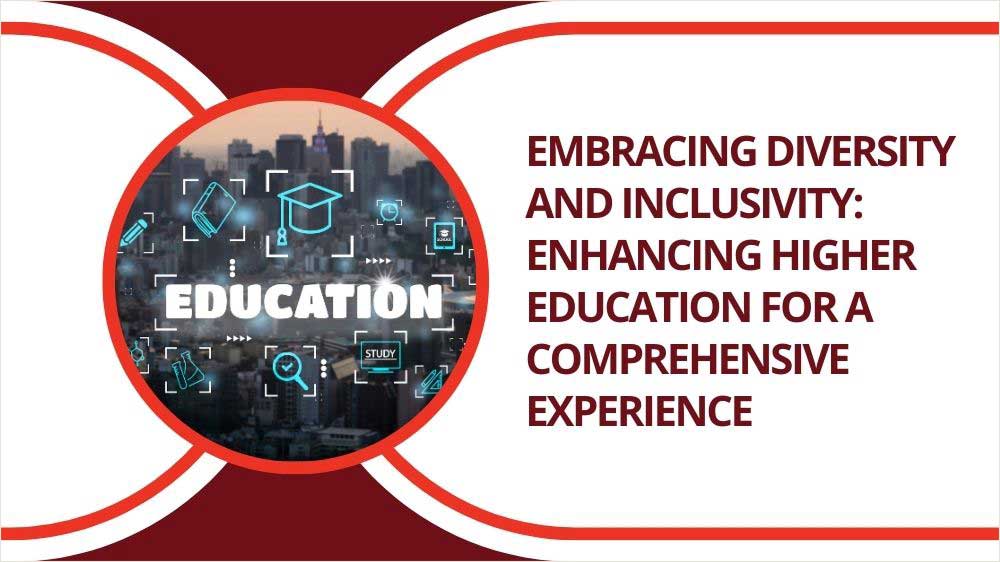
Embracing Diversity and Inclusivity: Enhancing Higher Education for a Comprehensive Experience
It is irrefutable that inclusion is a vital part of our day-to-day lives. A higher education institution serves as a cosmos for society. It plays a crucial role in shaping future citizens.
It is seen that inclusion is deeply rooted throughout a student's college life. It fosters unlearning and relearning, ensuring continuous student and faculty growth.
Recently, President Droupadi Murmu addressed a two-day visitor’s conference on how diversity, equality, and inclusivity make higher education comprehensive at Rashtrapati Bhavan in New Delhi.
Fostering diverse representation
Inclusion begins in college with the admission of students from diverse backgrounds. It is generally seen that students and faculty members come from diverse backgrounds, including socioeconomic status, geographic location, and more.
As we strive to build an inclusive and equitable society for all, the first step is to create a recruitment process free from any partiality between students and faculty.
Due to a test-prep-focused culture, Indian colleges rely on single test scores to give admissions to students. It results in the exclusion of some exceptional students from education.
A holistic admission process is required. Scholarships and strong financial support are available for such a process. In India, about 25% of students drop out initially due to financial constraints.
By addressing these constraints, the colleges can set up an environment that welcomes students irrespective of their backgrounds and financial constraints.
Nurturing an empathetic culture
A culture of respectful conversations is needed to foster a truly inclusive environment. It is advised that colleges set up clubs and forums where students can express their thoughts freely.
To promote a holistic culture, it is necessary to give importance to mental health and counseling services. Colleges can proceed further by creating a safe and interactive classroom environment for students.
Stress management activities and an open-door policy encourage students to seek support and share their problems in a safe environment. Eventually, it will create a culture of inclusion, well-being, and belongingness.
For effective change, building a holistic environment that collaboratively engages the community’s diverse voices is essential.